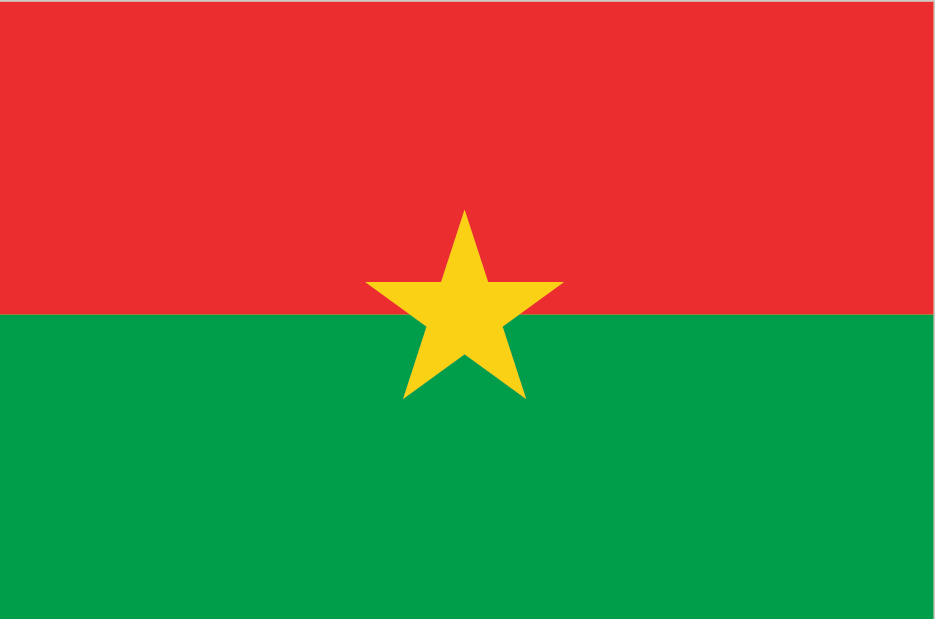
Sustainability Efforts
Country: Burkina Faso
Explore sustainability efforts in Burkina Faso. The United States Environmental Protection Agency (“EPA”) said it well when they state:
“Sustainability is based on a simple principle: Everything that we need for our survival and well-being depends, either directly or indirectly, on our natural environment. To pursue sustainability is to create and maintain the conditions under which humans and nature can exist in productive harmony to support present and future generations.”
About Burkina Faso
Burkina Faso, a landlocked West African country, is rich in culture with a notable tradition in music and dance. Predominantly agrarian, the nation grapples with food security issues and poverty. Despite political instability and security threats, Burkina Faso is striving for progress and development. Its welcoming locals exhibit the Burkinabè spirit of resilience and unity. Sustainability efforts in Burkina Faso will enhance the country’s future.
Sustainability Efforts
Toggle each button below to “open” and “close” the presented data.

Poverty: Burkina Faso has been grappling with high poverty rates, but strides are being made. Initiatives such as the National Social Protection Strategy aim to reduce extreme poverty and vulnerability. It targets sectors like agriculture, livestock, and fisheries, which involve nearly 80% of the population. The World Bank also supports poverty reduction in Burkina Faso through various initiatives, including the Burkina Faso Safety Nets Project.

Hunger: Hunger and malnutrition are significant issues in Burkina Faso, with 21.6% of the population food insecure as of 2020. The World Food Program (WFP) provides food assistance to vulnerable groups and supports the government in strengthening national capacities for managing food security.

Healthcare: The healthcare system in Burkina Faso faces many challenges, but progress is being made. Projects such as the Health Services Reinforcement Project, funded by the World Bank, aim to improve the utilization and quality of health services.

Education: Education in Burkina Faso has seen significant improvements over the past decade. The government, with support from organizations like UNICEF, has focused on increasing access to quality education, with an emphasis on girls' education and reducing regional disparities.

Gender Equality: Burkina Faso is working towards gender equality through several initiatives, including the National Policy for the Promotion of Women. This policy focuses on enhancing women's economic capacity and leadership and eliminating harmful traditional practices.

Clean Water Sanitation: Burkina Faso has made notable progress in access to clean water, but sanitation remains a challenge. The government, with support from international organizations, is investing in infrastructure and community-led initiatives to improve sanitation.

Affordable Clean Energy: Burkina Faso is harnessing solar power to increase access to clean energy. The country has one of the largest solar power plants in West Africa, which contributes to the government's goal of providing electricity access to its entire population by 2025.

Economic Growth: Despite challenges, Burkina Faso has seen consistent economic growth, with an average growth rate of 5.8% from 2016 to 2018. Key sectors include agriculture, mining, and services.

Industry Innovation: Burkina Faso is fostering industry innovation through initiatives like the Innovation Labs, supported by the World Bank, which encourages digital innovation to address local challenges.

Reduced Inequalities: Reducing inequalities is a significant focus in Burkina Faso. The government aims to improve living conditions for the most vulnerable, with policies targeting social protection, access to basic services, and income-generation activities.

Sustainable Cities: Burkina Faso is promoting sustainable cities through urban planning and infrastructure development. The government has initiated programs for urban renewal and upgrading informal settlements.

Responsible Consumption and Production: Burkina Faso is implementing various measures to promote responsible consumption and production, including waste management strategies and promoting sustainable agricultural practices.

Climate Action: As part of its commitment to the Paris Agreement, Burkina Faso is taking measures to mitigate climate change. This includes investing in renewable energy and implementing climate-smart agricultural practices.

Aquatic Environment: Burkina Faso, being a landlocked country, has no marine environments. However, it is working to protect and sustainably manage its freshwater resources, such as Lake Tengrela and other water bodies.

Natural Environment: Burkina Faso is home to diverse ecosystems. The government has established several protected areas and is working to combat desertification and deforestation.

Peace and Justice Institutions: Burkina Faso is working to strengthen its justice institutions and maintain peace. Efforts are focused on enhancing the efficiency and accessibility of justice services and promoting good governance.

Partnerships for the Goals: Burkina Faso is an active participant in international partnerships. It collaborates with various international organizations, including the United Nations, the World Bank, and regional bodies like the Economic Community of West African States (ECOWAS), to achieve sustainable development goals.



